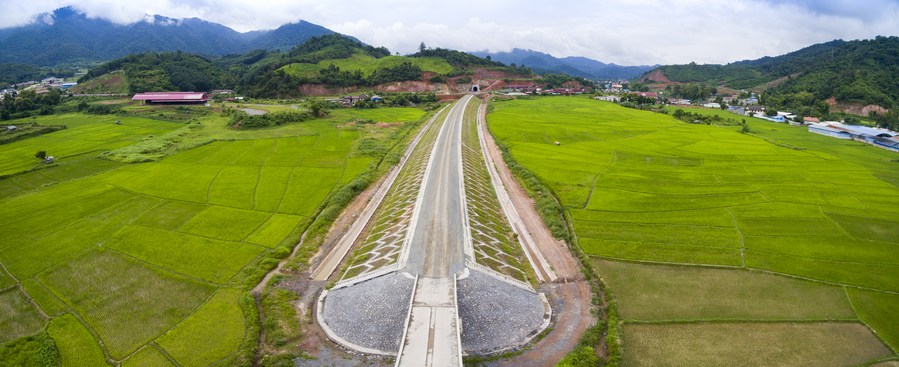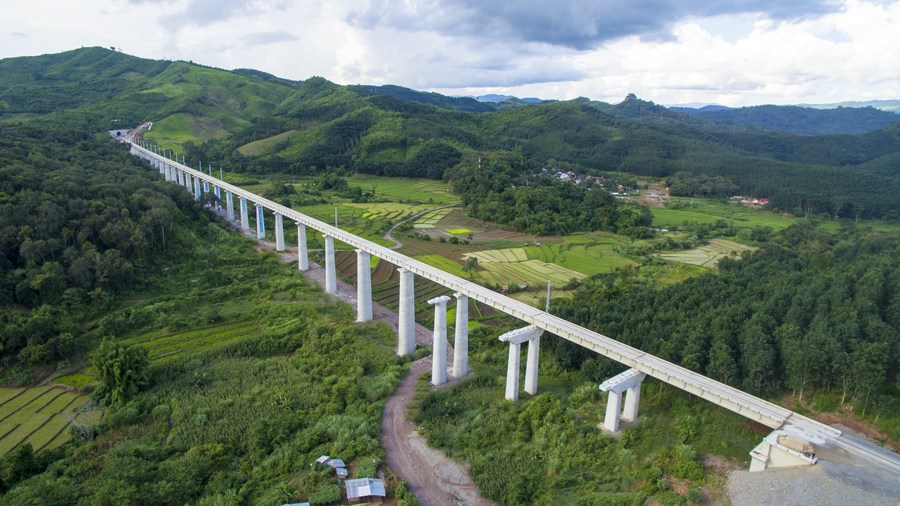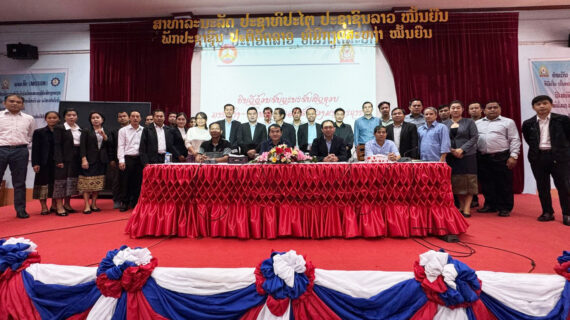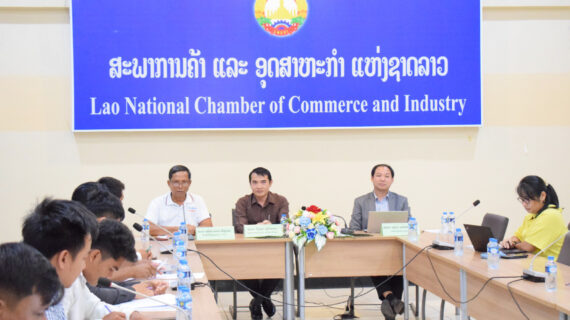Lao business leader dreams of China-Laos railway prosperity
The China-Laos railway will drastically cut the cost of transportation in Laos, which will be beneficial to trade and investment, as well as attract more visitors. When the railway comes into full service, the cost of imported goods in Laos is expected to fall.
VIENTIANE, Nov. 19 (Xinhua) — The upcoming opening of China-Laos Railway will represent the end of a long “road of dreams” for the Lao people, Daovone Phachanthavong, the vice executive president of the Lao National Chamber of Commerce and Industry, has told Xinhua.
“Building a railway here is not easy. Laos is a land of rugged mountains and high plateaus,” said Phachanthavong on Wednesday. “Transforming the country from a land-locked into a land-linked hub is no small task. Demands of topography mean the railway comes at a much higher cost, and needs the most advanced technology available.”
China is already Laos’ largest export market and largest foreign investor. The China-Laos railway will drastically cut the cost of transportation in Laos, which will be beneficial to trade and investment, as well as attract more visitors. When the railway comes into full service, the cost of imported goods in Laos is expected to fall.

“The railway will help farmers, making it easier to deliver their produce, in both Laos and China,” Phachanthavong said. “It will make Laos more attractive to Chinese investors, and to Chinese tourists.”
Lao Prime Minister Phankham Viphavanh will be on board for the first trip from Vientiane on Dec. 2, the National Day of the Lao People’s Democratic Republic.
“The event will begin with a religious ceremony, before the official opening on Dec. 3,” Phankham said when receiving a donation of Chinese COVID-19 vaccines in the capital city of Vientiane on Wednesday.

Each year, Laos makes hundreds of millions of U.S. dollars through exports of copper ore, copper and copper products, rubber, wood as well as agricultural products including sweetcorn and fruits. All these products are better suited to speedy rail transportation than the erratic flows of heavy lorries across the Lao highlands.
More foreign currency will flow in, improving exchange rates, lowering inflation, and strengthening the Lao economy. Besides, tourism will be a big beneficiary. Hotels, guesthouses, restaurants and vehicle rental businesses are expected to earn more, while revenue will be generated in communications, education and health, he said.
“The Lao people are proud and excited by the railway,” Phachanthavong told Xinhua. “It is a symbol of friendship that will bring happiness and prosperity to both countries.





